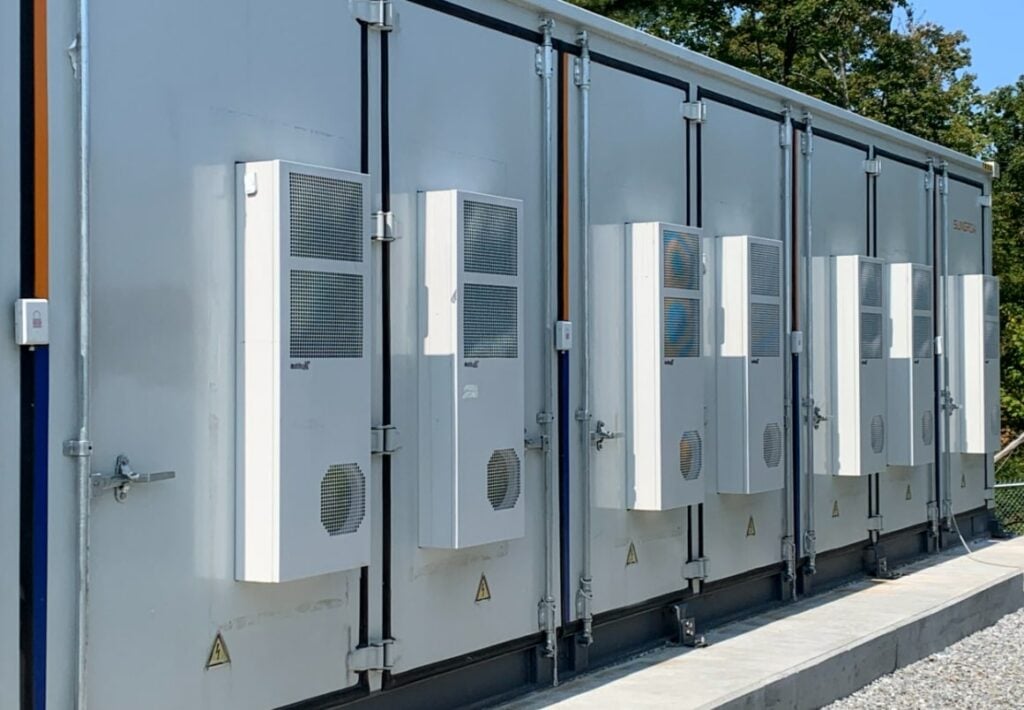
Changing electricity market dynamics and regulations in the US are increasing the need for AI-driven software solutions, the CEO of Stem Inc told Energy-Storage.news after a recent 10GWh partnership with developer SB Energy.
The firm provides battery energy storage system (BESS) solutions and AI-driven energy management system (EMS) through its Athena platform, which developer and operator SB Energy recently made its preferred platform for its 10GWh BESS pipeline across North America.
Enjoy 12 months of exclusive analysis
- Regular insight and analysis of the industry’s biggest developments
- In-depth interviews with the industry’s leading figures
- Annual digital subscription to the PV Tech Power journal
- Discounts on Solar Media’s portfolio of events, in-person and virtual
The pair have also agreed principle terms for a technology joint venture combining SB Energy’s digital platform and project development experience with Stem Inc’s offering.
Energy-Storage.news asked Stem’s CEO John Carrington what was happening in the US market that is creating the need for AI-driven solutions, to which he said:
“US electricity markets have been evolving quickly with increasing electricity demands, rising energy costs, and the need to bring more renewable energy online to offset some of these challenges. With intermittent renewables representing more of our generation stack in every market, grids require storage to balance their intermittency.”
“This results in the need to bring together increasingly complex systems, and high volumes of interdependent decisions required to optimise and manage the growing number of renewables assets. Effectively managing and optimising all of these seemingly disparate systems together can only be achieved with the power of AI-driven software.”
The massive amounts of data that are needed for the best analytics to increase BESS performance in electricity markets is something that only AI-enabled EMS platforms and trading strategies can deliver, Carrington added.
The topic of AI and BESS optimisation, as well as third-party BESS optimisation at large, has provoked some debate in the market. Another US developer-operator Spearmint Energy recently wrote a guest blog on this for Energy-Storage.news while we interviewed a leading optimiser Habitat Energy about challenges for the third-party optimisation model (Premium access).
Carrington claimed that Athena has been helping its corporate customers save 10-30% on monthly energy bills while large-scale developers can increase project returns rates by over 30%.
Asked to discuss the California, CAISO and Texas, ERCOT markets specifically – the US’ two largest BESS markets – Carrington then said that ERCOT is now following a similar trend to what CAISO already went through.
“For example, our platform is helping CAISO developers navigate Net Energy Metering 3.0, which outlines a new billing structure for how customers receive credit for excess electricity produced by their renewable assets. It makes it even more critical for developers to use AI to create their plans and accurately predict the market.”
“As ERCOT undergoes real-time co-optimisation, which will model battery storage as a single device instead of modelling the resource separately as generation and load, Stem’s Athena is critical in optimising renewable assets despite a changing regulatory landscape.”
Changes to Net Energy Metering in California have been covered extensively by our sister site PV Tech, most recently last week.
Stem Inc is one of several companies in the energy storage industry to have gone public via a SPAC merger in recent years. However, as Energy-Storage.news recently wrote in a Premium article, it and the three other most high-profile ones have seen their share prices fall substantially since listing after failing to yet meet revenue and profitability forecasts.
In its most recent quarterly results, for Q3 2023, the firm grew revenues 39% year-on-year while reducing its adjusted EBITDA loss from US$12.5 million in Q3 2022 to US$0.9 million. The firm said it expected to be EBITDA positive on an adjusted basis for the second half of this year, and maintain that position throughout 2024.






